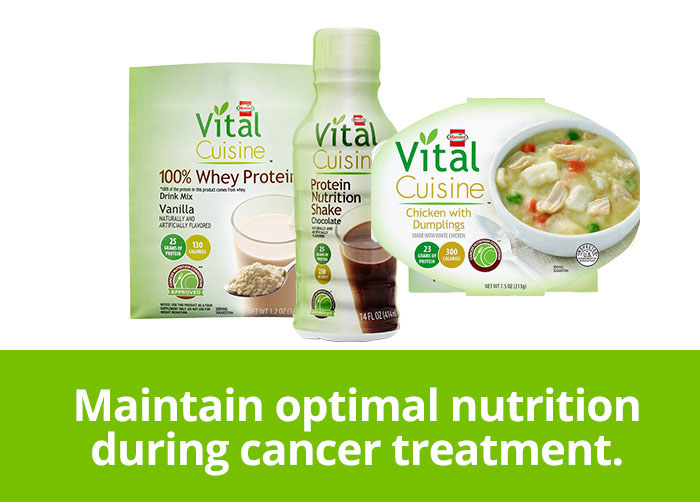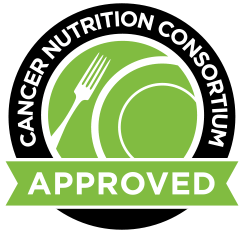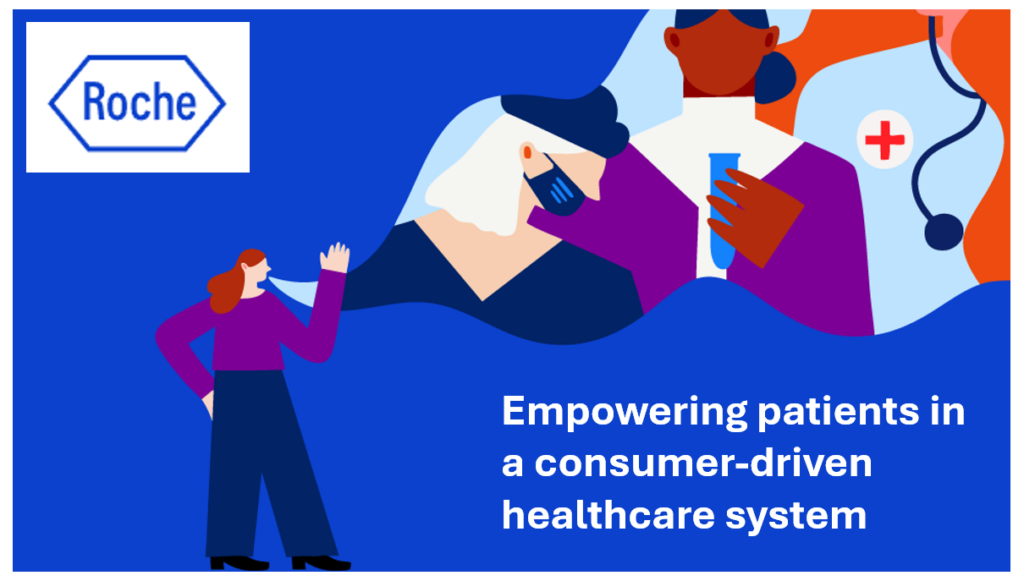 Think “Hormel,” and you may have visions of SPAM, Chi-Chi’s salsa, Skippy peanut butter, and Dinty Moore corned beef hash. So what’s Hormel doing in the title of a Health Populi post, anyway, you might ask?
Think “Hormel,” and you may have visions of SPAM, Chi-Chi’s salsa, Skippy peanut butter, and Dinty Moore corned beef hash. So what’s Hormel doing in the title of a Health Populi post, anyway, you might ask?
Like many food companies, Hormel is broadening its product portfolio expanding with health. The company isn’t just moving to healthy eating for wellness’s sake, but boldly going where most food companies haven’t yet gone: developing products for people battling cancer.
Vital Choices, a well-titled line of frozen meals, was developed by Hormel in collaboration with the American Cancer Society, Cancer Nutrition Consortium, the Culinary Institute of America, Dana-Farber/Brigham and Women’s Cancer Center, Delaware North, Independent Chefs, Mayo Clinic Cancer Center, New York University Langone’s Laura and Isaac Perlmutter Cancer Center, Ohio State University Wexner Medical Center, Rich Products Corporation, Roswell Park Cancer Institute, The Sidney Kimmel Comprehensive Cancer Center at Johns Hopkins, University of Chicago Comprehensive Cancer Center, and Yale University.
 Nutrition is an overlooked component of comprehensive cancer treatment. “Most cancer patients are too tired to make a meal, or even shop for it. Yet the importance of good, consistent nutrition during cancer treatment can’t be overstated,” attests Dr. Bruce Moskowitz, Chairman of the Cancer Nutrition Consortium on the Vital Cuisine website. Better nutrition during treatment can manage a patient’s risk of of complications, and boost lean body mass that supports better response to treatment (bolstering tolerance, strength, and activity).
Nutrition is an overlooked component of comprehensive cancer treatment. “Most cancer patients are too tired to make a meal, or even shop for it. Yet the importance of good, consistent nutrition during cancer treatment can’t be overstated,” attests Dr. Bruce Moskowitz, Chairman of the Cancer Nutrition Consortium on the Vital Cuisine website. Better nutrition during treatment can manage a patient’s risk of of complications, and boost lean body mass that supports better response to treatment (bolstering tolerance, strength, and activity).
The product line is detailed on the Hormel Nutrition Labs website, Home Care Nutrition. Consumers can order products form this site, the prices of which include free shipping.
![]() Health Populi’s Hot Points: The Vital Cuisine program speaks to several major driving forces re-shaping the health care landscape with consumers at the center: the food-as-medicine movement, collaboration for supporting consumer-centered health, and growing retail health options for people who seek convenience and control in daily living.
Health Populi’s Hot Points: The Vital Cuisine program speaks to several major driving forces re-shaping the health care landscape with consumers at the center: the food-as-medicine movement, collaboration for supporting consumer-centered health, and growing retail health options for people who seek convenience and control in daily living.
I recently met with a life sciences company that offers several products in the oncology space. Part of my discussion with the team was on “financial toxicity” — that is, the side effect of specialty oncology drugs that is high costs and financial stress on the patient and family. [This is a particular American challenge, with the median monthly price of branded oncology drugs $8,700 in the U.S., versus $2,600 in the UK, $2,700 in Australia, and $3,200 in China (reported at the 2016 annual meeting of ASCO, the American Society of Clinical Oncologists).] Financial toxicity continues to challenge millions of patients being treated for cancers, discussed in today’s Kaiser Health News which talks about patients shouldering more costs of (high-cost) treatment.
In our dialogue, I asked the managed markets team of the company whether when they met with Medicaid representatives throughout the U.S. they raised the issue of nutrition and food subsidies for enrollees. The goal of managed markets in the pharma/biotech firm is to ensure the company’s products are approved on the drug list (formulary) of the health plan/payor. Let’s say the team does their job well, and the expensive cancer therapy is approved for use with people enrolled in Medicaid.
Now picture that person does not have access to healthy food in their neighborhood, nor if it’s available, can the patient/family afford to purchase it.
The $8,700 monthly investment in the drug therapy can’t optimally do its job if the patient is wasting. I suggested that managed markets folks liaise with States’ Supplemental Nutrition Assistance Programs (SNAP) which offer nutrition assistance to millions of low-income individuals and families in the U.S. hunger safety net.
The role of food — in this case, Hormel’s Vital Choices food options — fills the part of the social determinant of health that is nutrition. I’m rooting for this program to be well-adopted so we can see a cohort of patients eat well during cancer therapy, and live well enjoying tasty food that bolsters health and quality of life. This program is an example of a creative collaboration between patient advocacy (the American Cancer Society), health care providers and researchers, chefs, and a food company putting patients – consumers – at the center. While the products are currently sold online, which is convenient for many people, there are those patients who will appreciate the opportunity to purchase food in a bricks-and-mortar retail grocer or pharmacy. Imagine that day when a patient can consult with a store pharmacist (whether grocery or chain pharmacy) who can “prescribe” a food-as-medicine approach in the frozen food aisle.




 I was invited to be a Judge for the upcoming
I was invited to be a Judge for the upcoming  Thank you Team Roche for inviting me to brainstorm patients as health citizens, consumers, payers, and voters
Thank you Team Roche for inviting me to brainstorm patients as health citizens, consumers, payers, and voters  For the past 15 years,
For the past 15 years,